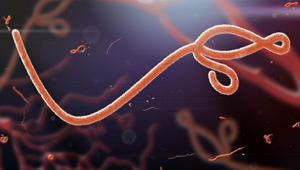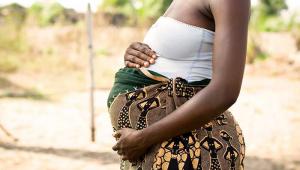By Judith Ugwumadu | 11 February 2015
The Department for International Development’s response to the Ebola epidemic in West Africa was ‘too slow’ and ‘failed to respond with urgency’ to the emerging crisis, according to a critical report published by the Public Accounts Committee.
PAC chair Margaret Hodge said that had the department reacted sooner, both lives and money might have been saved. It missed an opportunity to contain the outbreak, at least in Sierra Leone.
‘A capability gap currently exists in building and running specialist facilities necessary to deal with outbreaks of Ebola. This meant that scaling up the operational capacity of the UK response was slower than it might have been. The department told us this had been due predominantly to the absence of organisations that had both the capabilities and willingness to deliver the department’s interventions,’ she said.
The PAC said DFID had relied on the views of the World Health Organisation and paid insufficient attention to observations made by NGOs on the ground.
Its report revealed that there was a time lag from three months to March 2014 between the department’s recognition that it had to act and allocation of funding to deal with the outbreak. In early August 2014, DFID had announced £5m of support and by September this had risen to £100m and then to £230m.
DFID’s funds focused predominantly on Sierra Leone, the report said, but Hodge noted: ‘The lack of health infrastructure in Sierra Leone also hampered the response to the Ebola outbreak, and has probably led to an increase in fatalities as a result of other health problems as the system was overwhelmed.’
The UK’s response to the outbreak of Ebola Virus Disease in West Africa report recommended that, once the outbreak has been contained, DFID should review whether its current preparedness and protocols allow a timely response when faced developing public health emergencies.
The department should also direct its efforts to bolstering health care systems in the region and to supporting governments, the report suggested.
It also stated that there was no scientific evidence behind the UK government’s decision to prevent direct flights to the affected regions of West Africa and these should be ‘restored as soon as possible’.
However, International Development Secretary Justine Greening said Britain's decision to shoulder responsibility for tackling the Ebola outbreak in Sierra Leone had 'saved lives, not cost lives'.
Responding to the report, she said: 'The UK cannot disease-proof every developing country in the world from potential unprecedented outbreaks but we can offer our full support when they strike, as we did in Sierra Leone before any other country and at considerable risk to British lives.
'Everyone agrees that the World Health Organisation should have reacted faster and the global system must reform to improve collective detection and reaction.'













